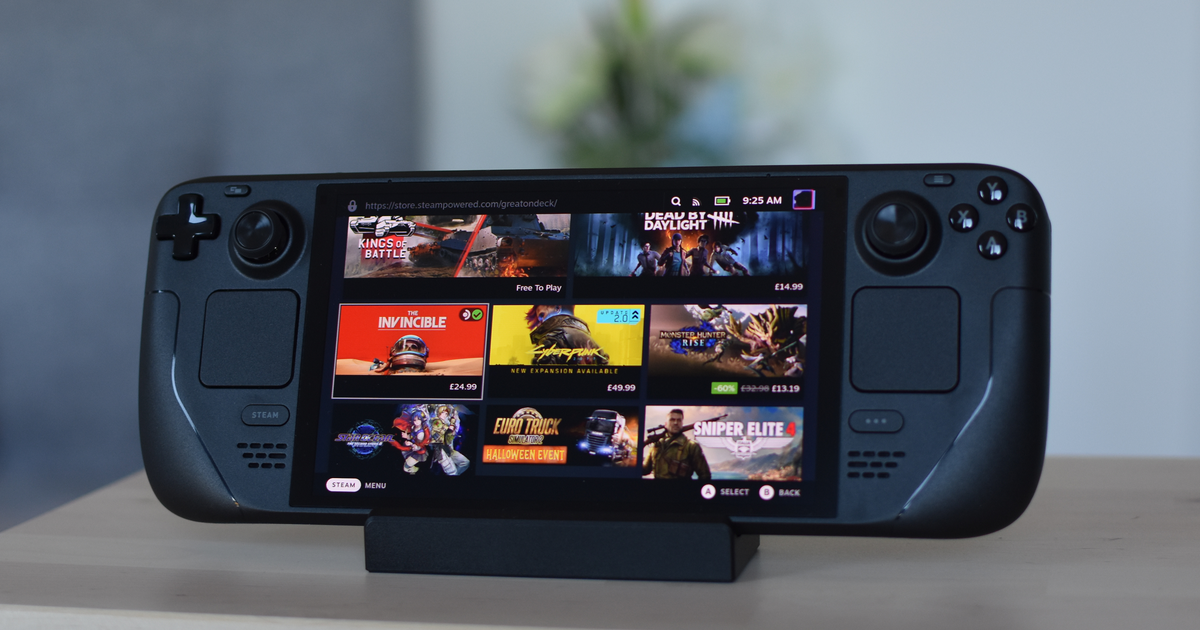Gaming
Valve’s ARM64 game testing points towards new Steam hardware, if vaguely

Valve appears to be working on another hardware project, according to a report from NotebookCheck. Following the Valve Index, Steam Deck, and Steam Deck OLED, their next device could potentially transition from the traditional x86 architecture to ARM, which is commonly used in devices like the Nintendo Switch, Macs, and mobile phones.
SteamDB has uncovered a software named ‘ValveTestApp3043620’ that is linked to numerous PC games such as Left 4 Dead 2, Garry’s Mod, Among Us, and Hollow Knight. These games have tags like ‘proton-arm64ec’ and ‘proton-arm64ec-experimental’, indicating that Valve may be testing a version of Proton (the software that enables Windows games to run on Linux-based SteamOS) for ARM64 processors.
The potential shift to ARM architecture could open up new possibilities for Valve’s future hardware releases. While the idea of Valve releasing SteamOS for MacBooks is a possibility, it is also likely that they are exploring ARM as the foundation for their upcoming hardware projects, diverging from their current x86-based Steam Deck family.
While the prospect of new Steam-branded hardware is not the main focus here, Valve has been involved in the hardware industry for over a decade and shows no signs of stopping. The shift to ARM could bring exciting opportunities but also pose challenges.
ARM chips are known for their power efficiency, making them suitable for devices like a new Steam Deck or wireless VR headset. Their compatibility with Android OS could also simplify the integration of mobile games into the PC environment, a feat that is currently limited on x86 hardware.
However, the transition to ARM would require overcoming performance and compatibility hurdles. Most PC games are designed for x86 architecture, potentially leading to performance issues when running on ARM. Proton’s role in bridging compatibility gaps may face challenges in adapting to the different ARM64 architecture.
Despite these challenges, the efficiency benefits of ARM could pave the way for new possibilities in Valve’s hardware lineup. While a next-gen Steam Deck may still be years away, a standalone VR headset powered by ARM seems plausible. Could we see a revival of Steam Machines with ARM technology? Only time will tell.
-

 Destination8 months ago
Destination8 months agoSingapore Airlines CEO set to join board of Air India, BA News, BA
-

 Breaking News10 months ago
Breaking News10 months agoCroatia to reintroduce compulsory military draft as regional tensions soar
-

 Gadgets3 months ago
Gadgets3 months agoSupernatural Season 16 Revival News, Cast, Plot and Release Date
-

 Tech News12 months ago
Tech News12 months agoBangladeshi police agents accused of selling citizens’ personal information on Telegram
-

 Productivity11 months ago
Productivity11 months agoHow Your Contact Center Can Become A Customer Engagement Center
-

 Gadgets4 weeks ago
Gadgets4 weeks agoFallout Season 2 Potential Release Date, Cast, Plot and News
-

 Breaking News10 months ago
Breaking News10 months agoBangladesh crisis: Refaat Ahmed sworn in as Bangladesh’s new chief justice
-

 Toys12 months ago
Toys12 months ago15 of the Best Trike & Tricycles Mums Recommend






















